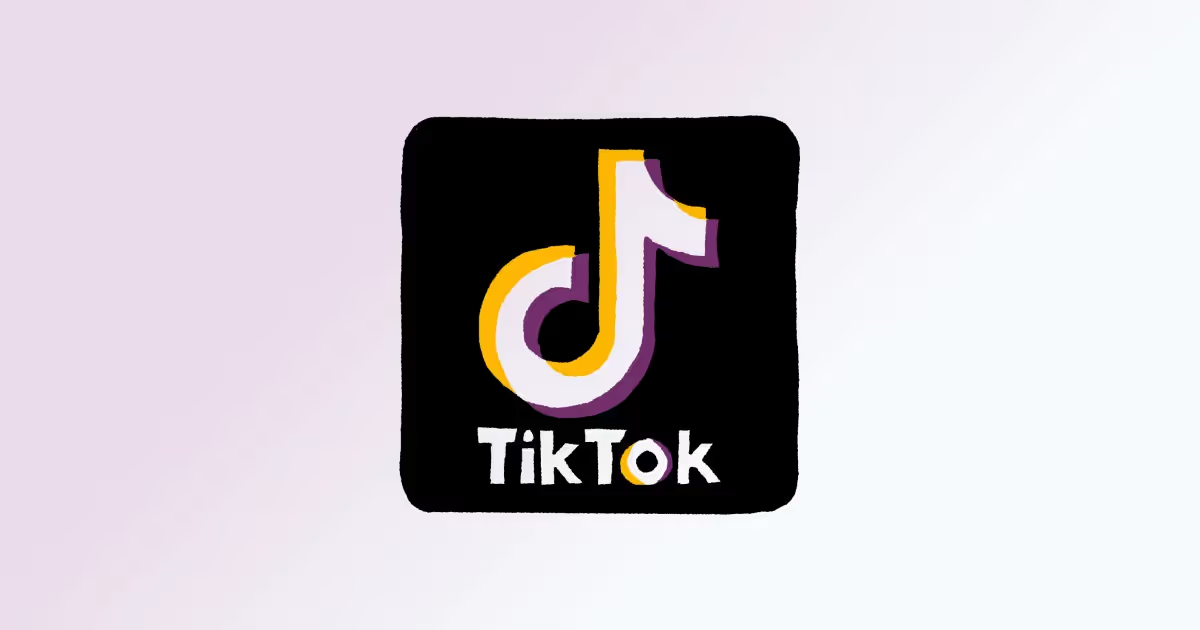For me, it’s all too many.
But there’s some truth to the statement – nearly all online businesses today are posting on a regular basis to drive organic growth. The only downside is that people often neglect what happens before and after you publish those pieces of content.
That includes tasks such as:
- Customer research
- Keyword research
- Search engine optimization (SEO)
- Content distribution
- And more
With a content marketing strategist, they’ll know what it takes to get more paying customers by covering selective topics.
However, it’s not always easy to find the right specialist.

The value of hiring a skilled content marketing strategist
A content specialist is well-versed in the realms of digital marketing. They have a strong understanding of what it takes to:
- Get in front of your target audience
- Create content that makes an impact
- Meet the needs of your consumers
- Build demand
- Drive readers to take action
If you want your content to reinforce steady business growth, you’ll need to know how to reach targeted traffic and convert a percentage of those visitors into paying customers. Otherwise, the content marketing efforts behind the scenes won’t pay off - since you’re not growing in revenue.
8 examples of content marketing skills
The end goal is to develop a system that brings qualified leads to the pipeline on a consistent basis.
By applying the range of skills listed, you’re one step closer to making it happen.
Search engine optimisation (SEO)
SEO is crucial for building your online presence.
Optimising your website and content for the search engines can improve your positions on the results page. The more people that come across your website, the higher the chance of considering your product or service before making a purchase.
Keyword research
Keyword research is the process of finding relevant words and phrases that your audience is entering in the search engines.
As a result, you’ll know what your audience is actually searching for. So instead of coming up with content ideas that you think your audience would consume, you can create a list of topics based on their actual queries without second-guessing.
Copywriting
Copywriting means writing to sell.
Aside from increasing brand awareness and visibility, they’re skilled at persuasive writing and know how to drive a reader to take action. In other words, they know how to communicate with your audience in a way that leads to direct sales and revenue.
Data analysis
On top of having good research skills, they’re adept at analysing data.
They’ll know what metrics to refer to for the success of your campaigns and how to use the context of your business to influence decision-making. Plus, they’re capable of finding external sources of information to position your brand as an authority.
Content promotion
Most of the magic happens during this part of the process.
Without proactively advertising, you won't get as many eyeballs or engagement from your audience. You have to take action in order to achieve that desirable outcome by doing things such as:
- Share articles on relevant channels
- Link building
- Guest posting
- Finding collaboration opportunities
This doesn’t occur overnight – it takes planning and consistent execution.
Editing
Before anything gets published to your website, the content strategist will review it to make sure you’re following the best practices.
For example, they may check for the following:
- Brand voice projection
- On-page SEO
- Typos or grammatical errors
- Citations used
- Relevant internal links
They have the ability to turn something good or mediocre into a high-quality resource that’s tailored for your specific audience. These gaps can be found with strong editing skills to ensure you’re meeting their needs.
Social media
Most consumers today are found online via social media.
This can be used to raise brand awareness, foster a community of followers, and get great engagement from your audience. With the right posts, it can also lead to more traffic landing on your website.
At the same time, it could be used to find information about their interests and pain points by getting a stronger understanding of their online behaviour.
Team management
They have the responsibility of developing and managing your content strategy. That includes project management: organising your team of freelance writers and taking the initiative to meet your business objectives.
5 key qualities to look out for
Good writing doesn’t solve all of your marketing problems.
To achieve substantial results, you’ll need to take the big picture into account. To put it another way, it's vital to have a depth of understanding of your target audience and solution. That’s where these key qualities come into play.
Empathy
A skilled strategist is capable of putting themselves in your customer’s shoes and imagining what the world is like from their perspective. This is one way to get new ideas and a better understanding of what they’re going through.
Using the information gained through the lens of your audience, it helps with improving your positioning.
Storytelling
Stories are a powerful tool in educating, entertaining and informing people.
A good narrative helps you develop an emotional connection with your audience and brings your business to life. Without making an impact or getting your readers interested, it’s unlikely that they’ll be driven to take action.
Creativity
Besides staying on top of the latest trends, it’s equally important to position yourself in a way that’s different from everyone else.
As critical thinkers, content marketing strategists can look at things from more than one perspective and offer a new approach to solving an existing problem. This is how you stand out and make a lasting impression.
Software proficiency
It’s common to use marketing software and a content management system (CMS) to organise the entire workflow of your marketing campaigns. For instance, using editorial calendars and automation to maximise productivity across social media posts.
Understanding the sales funnel
It’s necessary to have an understanding of how the sales funnel works if you want to get more leads.
Visualising the different stages helps you plan how you can fit in the customer journey and build interest in what you have to offer. This is a key approach to ensure you’re focusing on creating content that eventually converts new website visitors and readers into customers.
How a content marketing strategist delivers results
People want answers. Their objective is one of two things:
- Solve a problem
- Achieve a goal
It’s your job to provide them with useful information that satisfies their needs.
However, there are multiple things to take into consideration. If you also want to know how to become a content marketing strategist, it’s important to understand how each task works in order to increase brand awareness and get more paying customers.

Perform a site audit
A site audit is where you assess your website to see how well-optimised it is for the search engines. This means looking at the technical aspects of your website which need to be fixed. Or, it may just require a few minor tweaks or changes.
Here are a few examples:
- Fix broken links
- Remove low-quality pages
- Improve loading time of webpages
- Resolve indexing issues
Customer research
Customer research means understanding the background and behaviour of your customers such as:
- Frustrations
- Motivations
- Interests
- Preferred social media channels
To pinpoint specific details, they may request any existing data that you have on your customers.
This helps them develop a strategy that meets their needs in the best possible way. In regards to content, they’ll use the information to create a list of topics that are actually relevant and ones that solve a problem.
SEO & keyword research
On the topic of finding content ideas, this is where keyword research comes in.
This is the process of identifying the exact words or phrases that are being entered by your audience in the search engines.
For example, if you own a small business that sells shoe products, then there’s a chance that your audience is searching for something relevant such as:
- “Best running shoes”
- “How to clean suede shoes”
- “Shoe shops near me”
If you have a good ranking on the search engine results page (SERP) for these keywords, you’ll have a stronger likelihood of reaching your group of customers
Content creation
It’s vital to understand the search intent behind the keywords you’re targeting. Using the examples above, let’s take a look at what the motivations are behind each search.
- “Best running shoes” – the searcher is looking to buy a pair of running shoes but isn’t sure of which one to get.
- “How to clean suede shoes” – the searcher is looking for useful information to solve a problem.
- “Shoe shops near me” – the searcher wants to know if there are any shoe shops around the area to potentially visit.
Great content means meeting the needs of your users. So if we’re targeting the second example, then a step-by-step blog post or video would be a good format to use.
Anyhow, a content strategist identifies what type of content the topic demands.
If they’re not creating the content themselves, they could put together a content brief, which covers how to approach the topic. They’ll also give their approval first before anything gets published.
Content promotion
After creating a piece of content, the next step is to promote it.
The results don’t come out of thin air once you publish something. You have to make those results happen by distributing them to the relevant channels, e.g. posting on forums such as Reddit and using pay-per-click advertising.
For startups and small businesses especially, you’ll find that 20% of your efforts will be on content creation whereas 80% should be on content promotion.
To keep the workflow organised, it’s common to use content calendars such as Trello.
Conversion rate optimisation
This means increasing the number of users and website visitors who take action. For example:
- Email signups
- Product signups
- Schedule a discovery call
- Making a purchase
As a result, it leads to revenue and business growth because you’re acquiring new leads and customers.
Here are a few methods to optimise your content for conversions:
- A/B testing
- Call to action buttons
- Pop-up pages
- Testimonials
Monitor the performance
Lastly, they’ll monitor the performance of the content marketing strategy and make adjustments where necessary. You’re updated on a regular basis on how the content is performing and whether or not you’re on track to hitting your targets.
The cost of hiring a content marketing strategist
According to Glassdoor, the average salary of a content marketing strategist is £57,170.
The cost can vary from £36,000 all the way up to £90,000 per year. However, this is assuming that you’re hiring in-house.
Agencies are another option but the rates can vary depending on who you choose to work with.
Alternatively, hiring a freelancer offers more flexibility. Unlike employing someone for a full-time position, they’re easier to manage since they won’t need to be on your payroll system and it comes at a much lower cost.
Want to See Results? Start By Finding the Right Content Specialist For You!
Are you currently on the hunt for a content marketing strategist?
Look no further because you’re in the right place.
Passionfruit finds the best talent so you don’t have to. Out of the thousands of applications they receive, only 2% of specialists are accepted. Each of them has a proven track record at achieving significant growth for startup companies exactly like yours.
Get started now to find your content specialist within 72 hours!
Final thoughts
A content marketing strategist can certainly help you grow your business.
Rather than reaching out to your customers, a good content strategy will lead to the opposite outcome. Meaning, your audience will start reaching out to you instead.
The only way this works effectively is if you’re constantly giving value.
Before committing to creating a piece of content, you need to be sure that it’s something valuable for your audience. So, it’s important to find the information you need through customer, product, and keyword research.
Once that’s done, promote it diligently on the right channels and continuously optimise the content for better-performing results.







